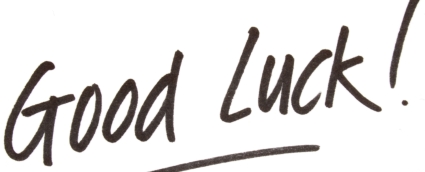Did you know that your chances of getting published increase the more professional you act? In this series of posts, I’d like to share with you some tips from other professionals working as freelancers, writers, publishers and editors. I’d also like to cover some tips that you might find interesting to think about as you navigate along your own path.
To start, I’d like to share with you an editor’s perspective. Besides her many other talents, Jennifer Brozek is an editor for Apex Book Company. She writes:
In the writing industry, it is always easier to work with a professional author than a non-professional one. I’m not talking just “published” authors. I’m talking about those authors (published or not) who have their acts together. They present themselves well in face-to-face meetings, have appropriate business cards and know when it is time to leave the editor to other business. They communicated well in an online forum, meet the specifications of the contract—on time every time—and they don’t tell tales out of school.—- Jennifer Brozek, submission editor for the Apex Book Company and author of In a Gilded Light
To start off the series, here are ten tips on how to be a professional that I’d like to share with you. These tips are related to acting like a professional writer, but some of them also echo with other creative fields like art and illustration or other freelancing roles as well.
1. Try Not To Act Desperate. Have you submitted a short story or a query for a non-fiction article? Can’t wait to hear back from an agent? Great! Guess what? You are not the only writer that has submitted something. Editors, agents, publishers wade through hundreds of submissions and often have other responsibilities besides addressing your work. Depending upon their workload (and whether or not they’ve worked with you before) it could take weeks, maybe even months, before they get back to you. Incessantly badgering people to read your submission will not make the process go any faster and it can actually hurt your chances of getting published.
So what is a good guideline for communication? Use your best judgment; some submission guidelines will cover what you should expect and some don’t. Also, I have seen some agents communicate generalities through social media, like Twitter. For queries, I like to follow-up within a week to confirm receipt, and say that I’ll follow-up again in a month if I haven’t heard anything. I’m usually more vigilant about other forms of communication, because a quick turn-around time can make (or break) a contract.
2. Read and Follow the Submission Guidelines – I’m not sure how much clearer I can be than that. Funny thing is, one of the most common reasons why people get rejected is because they don’t read or follow the guidelines. Did you know that they’re often there to see if a writer will follow directions? Don’t waste an editor’s time by avoiding pre-established rules. Seriously.
3. Write What You Want to Write – Do you like writing about flower pots? Then read similar articles on flower pots, research gardening magazines and write about flower pots. Do you hate writing about vampires? Then don’t write about them! It is easier to find work and establish your reputation as a writer if you enjoy what you’re writing. If your assignments turn into a chore, not only do you run the risk of approaching burn-out faster, but your quality might suffer, too.
4. Write Professional Correspondence – I talked a little bit about this previously when I said, “Please Write Out Your Emails.” I cannot stress enough the importance of writing a good query letter, email, cover letter, etc. If you don’t know how to do it, there are several books and blogs on the subject.
5. Do Not Publicly Bitch About Your Bad Experiences – While it is important to be yourself, in today’s environment anything you say can and will be overhead by someone you don’t know. I wrote a very tongue-in-cheek post about How To Ruin Your Online Reputation In 10 Easy Steps a while ago. Many of those comments apply to being a professional writer as well. Publicly bitching about your experiences in a way that reflects poorly on the publication (or agent) you’ve submitted to, an editor, etc. is a BIG no-no. Think about it this way: Would you want to hire an employee who’s complaining that they can’t get published? Or that an editor gave them a crappy review?
6. Don’t Overstate Your Abilities (Or Your Credits) – Take a good, long look at your list of publications. Is it accurate? Or did you fluff your credits with things you didn’t actually contribute to? While Credit is the Greatest (and Cheapest) Gift You Can Give, be conscientious of giving yourself too much credit. The publishing industry is not as big as you might think; people know other people in this business and they are not afraid to ask questions about you.
7. Don’t Talk About Your Personal Finances – Would you go to a job interview and say, “I really need this job because I’m broke and my cat just died?” Do. Not. Talk. About. Your. Money. Why? First of all, when you say that you are a) a writer and b) you’re broke, you are leaving an impression in someone’s mind that you are a shitty writer who can’t get published or make enough money to keep writing. Even if that isn’t true, no one wants to hire someone out of pity. Seriously. When my cat had emergency treatment, my SO and I talked about setting up a fundable page, partly because people asked how they could help. We did end up setting one up, but I didn’t post about it extensively, nor did I post about it on this site. Yes, emergencies do happen but the professional will always reign supreme. Unfortunately, it is very hard to keep the lines of “personal” versus “professional” separate online. Regardless of what you choose to reveal about your personal life, it is very bad form to beg.
8. Don’t Take Bad News Personally – Bad reviews, rejection letters, harsh critics…they’re all part and parcel to being anyone who produces creative works for a living. It sucks, it does…but it’s part of the job. When you get bad news, usually there’s a good reason for it. Maybe your story didn’t fit a magazine. Maybe your book didn’t hit the market at the right time. Maybe you’re query letter was terrible. Or maybe, just maybe, your story wasn’t good enough to get published. Whatever reason lurks behind getting bad news, that news has to do with what you wrote. It is not a personal attack on you. Keep that in mind as you navigate through your career. Yes, you have every right to feel and react to those emotions when you do get the bad news, but try not to go off the deep end.
9. Don’t Expect Other Authors To Do You Any Favors – As I was working on this post, John Scalzi wrote, “On the asking of favors from established writers.” Couldn’t have said it better myself.
10. Be Strategic About What You Give Away For Free – Earlier, I wrote about My Stance On Writing For Free where I talked about how writing for free works if it is part of your business model. Throwing up stories and other content haphazardly is “not” a good way to get writing credits. Seriously. Some free sites have excellent reputations, and some do not. Check out a website thoroughly to see whether or not you want to be associated with it. (Please note that “fan fiction” is not a professional writing credit in most circumstances. For more information, read my explanation about What Is Shared World, Tie-In and Fan Fiction?)
The other reason why you want to be careful about writing for free, is that it is counter intuitive to your goal for becoming a professional author. In most cases, pros get paid. Saying that you’ll work for free just to get in on a sweet project is akin to saying that you don’t think your work is worth money. Keep in mind that I determine what I’ll write for free based on “what” it is, too. For example, I’ll occasionally write non-fiction for a little self-promotion, which I’ll cover in a later point.
In my next installment, I’ll cover more examples of being a professional and some other tips that you might want to consider. Are you a true professional that would like to chime in? Feel free to offer your tips for others in the comments below.

 Three Tips For Getting Published from BubbleCow
Three Tips For Getting Published from BubbleCow